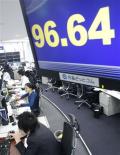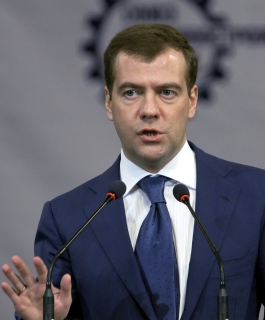Related video: The Energy Non-Crisis by Lindsay Williams

The U.S. Congress continues to show an incredible amount of ignorance on the oil issue. This week, the U.S. Senate held a hearing on the high price of oil and called out a group of oil company executives to testify. In addition, the U.S. House of Representatives approved a bill to sue OPEC over the high oil price. All of this grandstanding by our so called elected officials is going to do nothing to resolve the high oil price. This is a case of the U.S. Congress misdirecting the blame of the high oil price on OPEC and the major oil companies when they are really only minor players in this game. Threatening to sue OPEC is an incredibly stupid move because that could very well have the reverse effect and cause OPEC to respond to this threat by reducing the amount of oil they decide to pump. The two major reasons for the high oil price involve the Federal Reserve devaluing the U.S. Dollar through their monetary policies as well as the U.S. occupation of Iraq and Afghanistan. On top of this, it is clear that the Bush administration is looking for any excuse possible to bomb Iran. Israeli Prime Minister Ehud Olmert has even stated that a naval blockade of Iran is an option that should be put out on the table. With the devaluation of the U.S. Dollar and a potential expansion of war in an area where a tremendous amount of oil is drilled, it is no wonder why the oil price has skyrocketed as high as $135 a barrel. This makes the actions of the U.S. Congress entirely insane and intellectually bankrupt. Expect oil prices in the long term to move much higher.
Since oil is priced in U.S. Dollar denominated terms and the monetary unit of the U.S. Dollar continues to be devalued by the Federal Reserve’s ability to create as many U.S. Dollars as they like, it isn’t a real mystery as to why the oil price is so high. Instead of suing OPEC, the U.S. House of Representatives should be suing the Federal Reserve for fraud. The Coin Act of 1792 states that U.S. Mint employees who are caught debasing the nation’s coinage would be subject to the penalty of death. The Federal Reserve is engaging in the intentional debasement of the nation’s currency which is fundamentally no different and in fact worse than employees of the U.S. Mint debasing the nation’s coinage. Instead of debasing the physical coinage, bankers can simply type digits into a computer to devalue the nation’s currency. Maybe the death penalty should be explored for some of the central bankers that have engaged in these practices.
The U.S. Congress is also helping to contribute to the high oil price with their ridiculous policies. They have funded the illegal and unconstitutional occupation of Iraq and Afghanistan since 2003. The U.S. Senate just passed another war funding bill which will give the executive branch another $165 Billion to continue military operations in Iraq and Afghanistan. By continuing the military occupation of these countries it makes an attack on Iran all the more likely and contributes to greater uncertainty in the oil producing region.
General David Patreaus the current commander in Iraq is on the path to being confirmed as the new CENTCOM commander which means he will be in charge of all U.S. military operations in the Middle East. Assuming he gets confirmed, the chances of a strike on Iran will be all the more likely. Admiral William Fallon the former CENTCOM commander resigned from the position due to the perception that he was refusing to play ball with the Bush administration’s agenda on Iran.

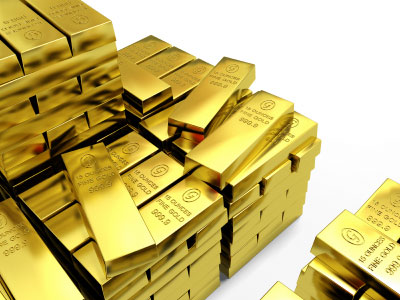
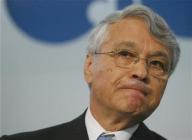

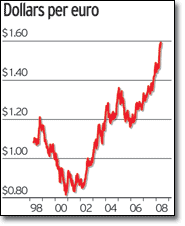
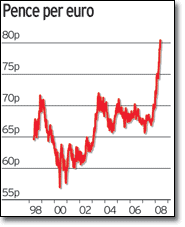
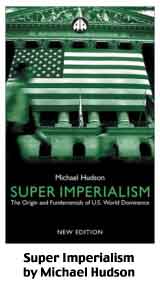



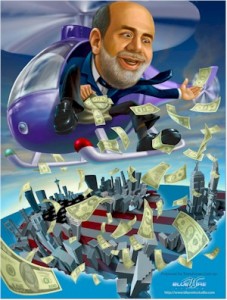
 A trader reacts in front of the DAX board at the Frankfurt stock exchange.
A trader reacts in front of the DAX board at the Frankfurt stock exchange.